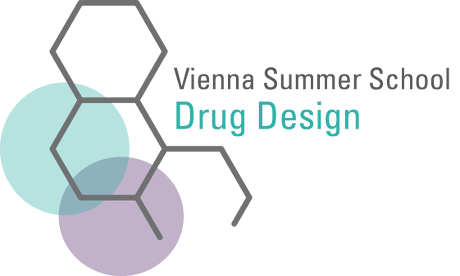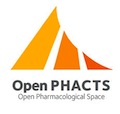


What do I do with the hit list?
Schrödinger is supporting research activities around the world to facilitate and accelerate the discovery of new drugs. With more than 2000 academic groups already using Schrödinger software in their daily work, don’t miss the opportunity to use it yourself at workshop held on Monday 16th of September and Tuesday 17th of September afternoon at 15:00.
The workshop will be focused on Computer-Aided Drug Design using the Schrödinger Software Suite and will be held by Schrödinger's Senior Applications Scientist Dr. Daniel Cappel. The detailed content of the training sessions will be defined together with the guidance of participant interest.
All participants of the workshops will get a 30-days free trial license of the software. If you want to familiarize yourself with the user interface Maestro upfront have a look at the training videos at:
http://schrodinger.com/supporttraining/18/18/
For any questions regarding the workshops or the software itself, please feel free to contact Rita Podzuna at
Monday, September 16th, 15:00
Tuesday, September 17th, 15:00


Design of novel antibiotics using LigandScout
LigandScout is a fully integrated platform for accurate virtual screening based on 3D pharmacophore models. It offers seamless workflows for both ligand- and structure based pharmacophore modeling, and includes novel high performance alignment algorithms for excellent prediction quality with unprecedented screening speed. Additionally, we have included user-friendly screening analysis tools, including advanced screening metrics for model evaluation and optimization. All functions are accessible through a well elaborated graphic user interface that reflects our years of experience in creation of the most user-friendly pharmacophore modeling tools.
In this workshop we will develop ligand- and structure-based 3D pharmacophores using the example of DNA Gyrase inhibitors starting from known fluoroquinolone scaffolds and perform virtual screening experiments to identify novel compound classes. Model evaluation according to screening metrics on sets of known actives/inactives will be demonstrated and allow workshop participants to optimize, refine and validate their individually developed models.
Monday, September 16th, 15:00
Tuesday, September 17th, 15:00


Virtual Screening in real life - Decision making and statistics to back them up
Virtual Screening is one of the most often applied techniques in Computational Chemistry.
Identification of the simplest method delivering the best results in the shortest time might be the goal but this is not easily achieved. Questions to answer here are:


Overview of MOE in Drug Discovery
The course covers the application of a general set of MOE based design and modeling tools to a series of structure based drug design examples. Drawing and displaying molecular surfaces to visualize binding pockets will be described. Ligand modification and energy minimizations on ligands in the active site will be performed. Building pharmacophore models based on protein ligand complexes as well as docking of model ligands for pose generation will be covered.
Combinatorial fragment design and scaffold replacement in the receptor active site will be described in detail, along with approaches for fragment linking and growing.
Wednesday, September 18th, 15:00
Thursday, September 18th, 15:00


Visual Lead Design and Optimization
LeadIT combines the power of scaffold hopping (ReCore) with our well established docking engine (FlexX) and the latest break-through in binding affinity estimation (HYDE). All wrapped in an easy to use GUI.
Starting from a protein structure, we will show how to best attempt a structure-based design project. First resolve any ambiguities and get a feel for the issues and opportunities when designing better compounds. Then do scaffold hopping, docking and affinity assessment to optimize properties.
Back home, you’ll be able to work on your own project. Every participant of the workshop will receive a free 3-month trial license.
Thursday, September 18th, 15:00


Open PHACTS is building a generic semantic data integration infrastructure targeted on medicinal chemistry. Currently it integrates 10 different data sources, such as ChEMBL, Uniprot, Drugbank, and allows to look up answers to complex research questions, such as "give me all oxidoreductase inhibitors with an activity <100 nM". Besides the Open PHACTs Explorer, which provides a basic user interface, several applications are available which allow sophisticated analysis of the data in the Open PHACTs Discovery Platform. These include e.g. ChemBioNavigator for intuitive navigation through the data, and PharmaTrek for polypharmacology browsing.
The workshop on Thursday will provide hands on training on the use of Open PHACTs Explorer, whereas the workshop on Friday will focus on the use of ChemBioNavigator and PharmaTrek.
Thursday, September 19th, 15:00
Friday, September 20th, 14:00